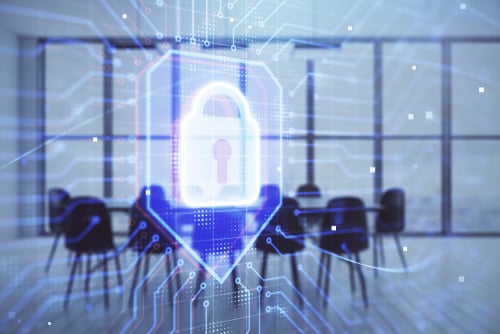The company's 110/110 assessment score confirms the maturity, rigor, and real-world readiness of its program to meet DoD standards and protect sensitive information.
Systems Engineering Earns CMMC Level 2 Certification with Perfect Score, Demonstrating Operational Cybersecurity Excellence
While CMMC compliance can feel complex, with the right guidance, it is entirely achievable. Every CMMC requirement is designed to safeguard Federal Contract Information (FCI) and Controlled Unclassified Information (CUI). For organizations pursuing CMMC Level 2 assessments, it means having clear, documented evidence that security controls are in place and function effectively.
In nearly every industry, cybersecurity has become a standing topic on the board of directors’ agenda, and credit unions are no exception. According to the NCUA’s 2025 Supervisory Priorities, credit unions and their third-party vendors are facing more frequent and sophisticated cyberattacks than ever.
As credit unions increasingly rely on digital infrastructure to serve their members, risk exposure is growing. Today, cybersecurity is no longer just an IT concern—it’s a strategic risk management issue, and a board-level responsibility. Boards are expected to play an active role in safeguarding sensitive information and overseeing the institution’s cyber posture.
If you're a defense contractor or part of the Defense Industrial Base (DIB), your SPRS score isn’t just a number; it’s a gatekeeper to federal contracts. With the Cybersecurity Maturity Model Certification (CMMC) program gaining traction, understanding your Supplier Performance Risk System (SPRS) score is critical to maintaining contract eligibility and securing future opportunities.
As CMMC (Cybersecurity Maturity Model Certification) edges closer to becoming a contract requirement across the board, many defense contractors are still wrestling with a foundational question: What will CMMC compliance really cost us? And perhaps more importantly—how do we budget for it effectively when there's still so much uncertainty?
Cybersecurity threats continue to rise in both volume and sophistication and for credit unions, the stakes are especially high. In response, regulatory oversight has intensified as the National Credit Union Administration (NCUA) has named cybersecurity its top supervisory priority for 2025. Credit unions—particularly those with limited internal IT capacity—must
The Future of Cybersecurity for Credit Unions: How to Ease the Transition from FFIEC CAT to NIST CSF 2.0
For nearly a decade, the Federal Financial Institutions Examination Council (FFIEC) Cybersecurity Assessment Tool (CAT) has been an important tool for many financial organizations assessing cybersecurity risks. It has provided a standardized way to evaluate both inherent risks and cybersecurity maturity. However, as cyberthreats evolved, the CAT struggled to keep pace. The tool's static nature meant updates were infrequent, leaving credit unions with outdated guidance in a rapidly changing environment.


.jpg)









